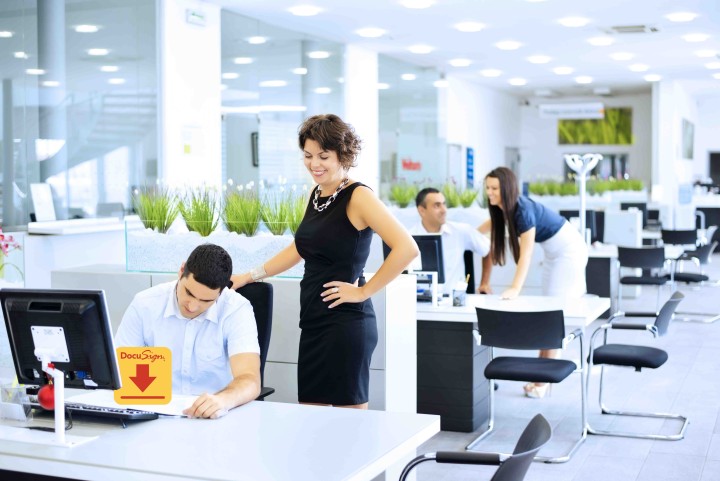Smart homes are coming more common throughout North America, and it does not take long to figure out why this is the case. Convenience and safety are exponentially increased thanks to these developments made in many technological areas. Often the initial investment is even returned in the form of energy efficiency within a short period of time. As the benefits become increasingly obvious and the bugs are worked out in these systems, they are beginning to spread to other areas. Office buildings and other business are seeking out smart technologies to incorporate into their daily processes. These components will assist in the work and spaces of these companies.
Smart HVAC Systems
As touched upon briefly, smart systems can have amazing affects on energy efficiency. This all revolves around heating, ventilation and air conditioning systems (HVAC). Smart systems can monitor and control everything pertaining to this including pump systems, water flows, and even maintaining previously set temperatures. These can also instigate a change in the heating according to a set schedule to better accommodate peak hours and quiet times. They respond accordingly. Some are also able to respond to temperatures outside or within the building. A lot of power is wasted in buildings as people manually heat and cool individual offices, while a smart HVAC system is able to automatically instigate the best way to do these functions based on the time and climate outside.
Electricity
It is no secret that air conditioning is a very expensive cost. It can also cause quite a strain on a municipality’s system during the hottest months of the year, especially in a heat wave. Not only is this a costly system, it also has environmental repercussions in the long run. Due to this many governments – local, provincial, and sometimes federal – offer tax breaks for those who minimize their air conditioning use. This financial incentive is enticing for many small businesses because of how much money can be saved. Smart systems have the ability to help achieve this. It is simply a matter of the right programming. It will help track the usage of air conditioning as well.
Building Security
For better or for worse, more security measure seems to be necessary for many buildings and institutions. They are necessary for ensuring the safety of employees, as well as allowing them to feel protected at their place of work. That being said, it can make having visitors come into the building a bigger hassle than many would like it to be. Smart systems are looking for ways to expedite this process without skimping on the safety aspect. What some have done is to incorporate clients’ email addresses directly into visitor registration. This allows those with known emails to “check in” to the company’s building with ease so that business does not have to suffer.
Smart Lighting
Large buildings require a lot of lighting in order to be brought out of the dark. This is not rocket science, and anyone is able to figure it out. Unfortunately, the amount of energy that is wasted as a result of lighting office buildings is astonishing. There are a number of things that can be done to aid in the waste like replacing fluorescent lighting with LEDs. This is a great start. Another option is having lights attached to movement sensors with will turn on when a person enters the proximity. This way floors and wings that are not in use are not being lit unnecessarily and wasting energy which also raises building expenses.
Smart lighting doesn’t just have to refer to light bulbs though, it can even come in the form of automated window coverings. These smart blinds can be programmed to open and close at certain times of the day or simply respond to a remote. After all, there is no replacement for natural lighting and automated shade are a great way to incorporate it with a professional appearance without losing privacy.
Controlling from Remote Locations
The idea of remote control of a building’s systems might seem unnecessary initially, but depending on the size and type of business it can be a revolutionary addition. Small businesses, in particular, might benefit from this feature because often they have smaller staffs, which in turn means there are fewer people keeping an eye out for oddities. Remote access means that there can always be someone checking in on the space. If they are running late remote access might even mean that there is the ability to start setting some things up in preparation of the day whether it’s opening motorized blinds or turning on the AC.

